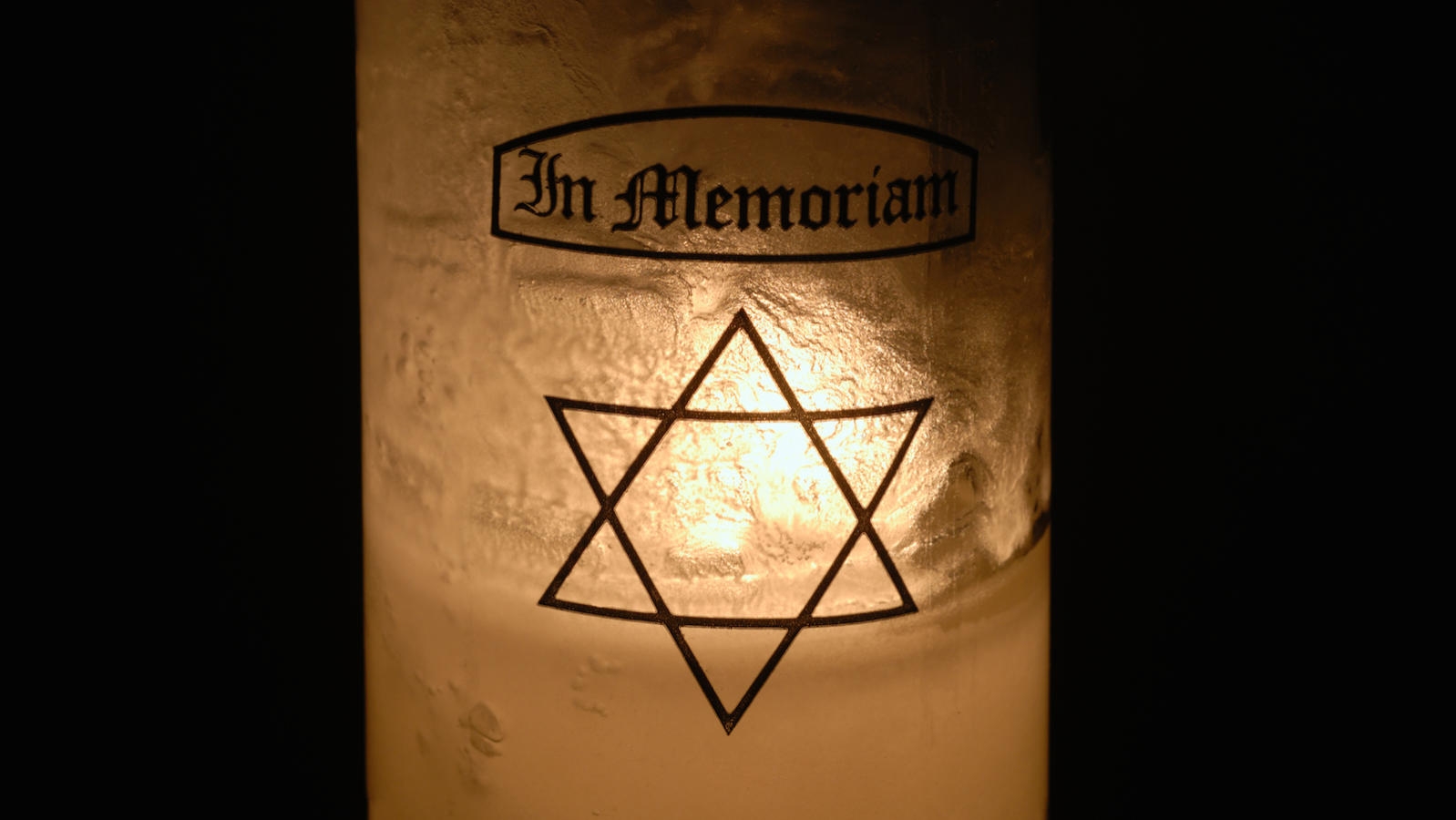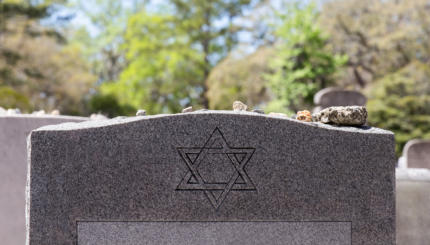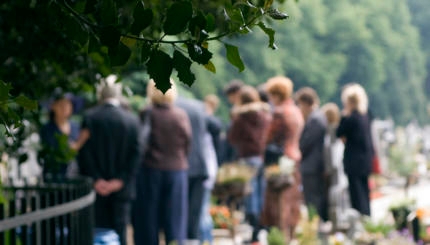is a Jewish period of mourning that generally lasts seven days, starting when the mourners return home from the funeral. During shiva, a mourner traditionally stays at home or at the home of the deceased or the deceased’s other mourners, wears torn clothing or a torn black ribbon pinned to one’s clothes (a practice known as ) and doesn’t go to work or school. During this period, friends and family visit in order to keep the mourner(s) company and provide comfort. Learn more about shiva here.
Traditionally, Jews are obligated to sit shiva when they have lost a parent, sibling, spouse or child. Jews today observe shiva in a variety of ways. While many people find comfort in observing all the traditional customs of shiva, others observe only some customs. Some people divide the week between multiple locations, often staying with — or traveling to — the homes of other family members who are mourning the same loved one. Other families sit shiva for fewer than seven days, or announce specific visiting hours each day, so they do not feel pressured to accept visitors all day long. While many mourning families host a shiva each day, a prayer service in which they can recite the Mourner’s Kaddish, not all do.
In addition, not all Jewish mourners choose to take all the traditional steps in preparing the home; for example, not everyone covers the mirrors in their home during the shiva period.
The checklist below lists things you may want to do to prepare a shiva house. In many synagogues, a committee of volunteers is available to help with these tasks. Be aware that each mourner is different, however, and not all families will want to take every step listed. Did we miss something important? Email us at community@myjewishlearning.com or leave suggestions in the comments below.

Help us keep Jewish knowledge accessible to millions of people around the world.
Your donation to My Jewish Learning fuels endless journeys of Jewish discovery. With your help, My Jewish Learning can continue to provide nonstop opportunities for learning, connection and growth.
General Preparations for Shiva
- Notify the mourner’s employer that he or she will be unavailable for the week.
- If the deceased person and/or their mourners are affiliated with a synagogue, contact the synagogue(s) to request help with practical arrangements, set a schedule of services (the shiva minyan) and ensure that 10 adults will be at services (if applicable).
- Decide when/where you will sit shiva and will accept visitors, so that the funeral director or rabbi can distribute that info to those who want to visit.
- Set a schedule for meal preparation by friends and extended family or enlist the service of a caterer. Ensure that the house is stocked with enough food for the mourners and their guests. Identify where to donate leftover food and who will bring it there.
- Arrange for someone (a friend, synagogue volunteer or a hired person) to clean the house before and during shiva.
- Notify neighbors of the presence of additional cars and people in the neighborhood.
- Prepare a handout with the shiva information, to be passed out at the funeral. Make sure it includes the address of (and maybe directions to) the home where shiva will be observed, hours during which visitors will be welcomed, and the times services (shiva minyan) will be held, if applicable.
Preparing the Shiva House
- Cover the mirrors, if desired. It does not matter what material you use to cover the mirrors (paper, fabric etc.) Since the reason for this tradition is that people shouldn’t be able to see their reflection, mirrors above or a below a height where people will be able to see themselves need not be covered.
- Consider having a sign-in book and pens/pencils for the guests.
- Have a good supply of tissues.
- Put away any highly valuable or delicate items.
- If desired, borrow from the synagogue or funeral home low chairs or cushions for the mourners’ seating, prayer books for services, and kippot (head coverings) for guests. In addition, most funeral homes or groups (Jewish burial societies) will provide a large shiva candle that burns for seven days. You can also purchase ones (including electrical ones) online.
- If desired, create a door sign with visiting hours posted.
- Set up tables and chairs (low chairs or couches without the cushions for the mourners, regular chairs for everyone else). You may need to borrow extra chairs depending on the number of visitors expected.
- Consider displaying photos of the deceased. This is a nice way to honor the deceased and encourages visitors to talk about the deceased, rather than discussing only trivial matters.
Special thanks to Rabbi Jason Weiner for his assistance with this article.
Sign up for a Journey Through Grief & Mourning: Whether you have lost a loved one recently or just want to learn the basics of Jewish mourning rituals, this 8-part email series will guide you through everything you need to know and help you feel supported and comforted at a difficult time.
Looking for a way to say Mourner’s Kaddish in a minyan? My Jewish Learning’s daily online minyan gives mourners and others an opportunity to say Kaddish in community and learn from leading rabbis.



